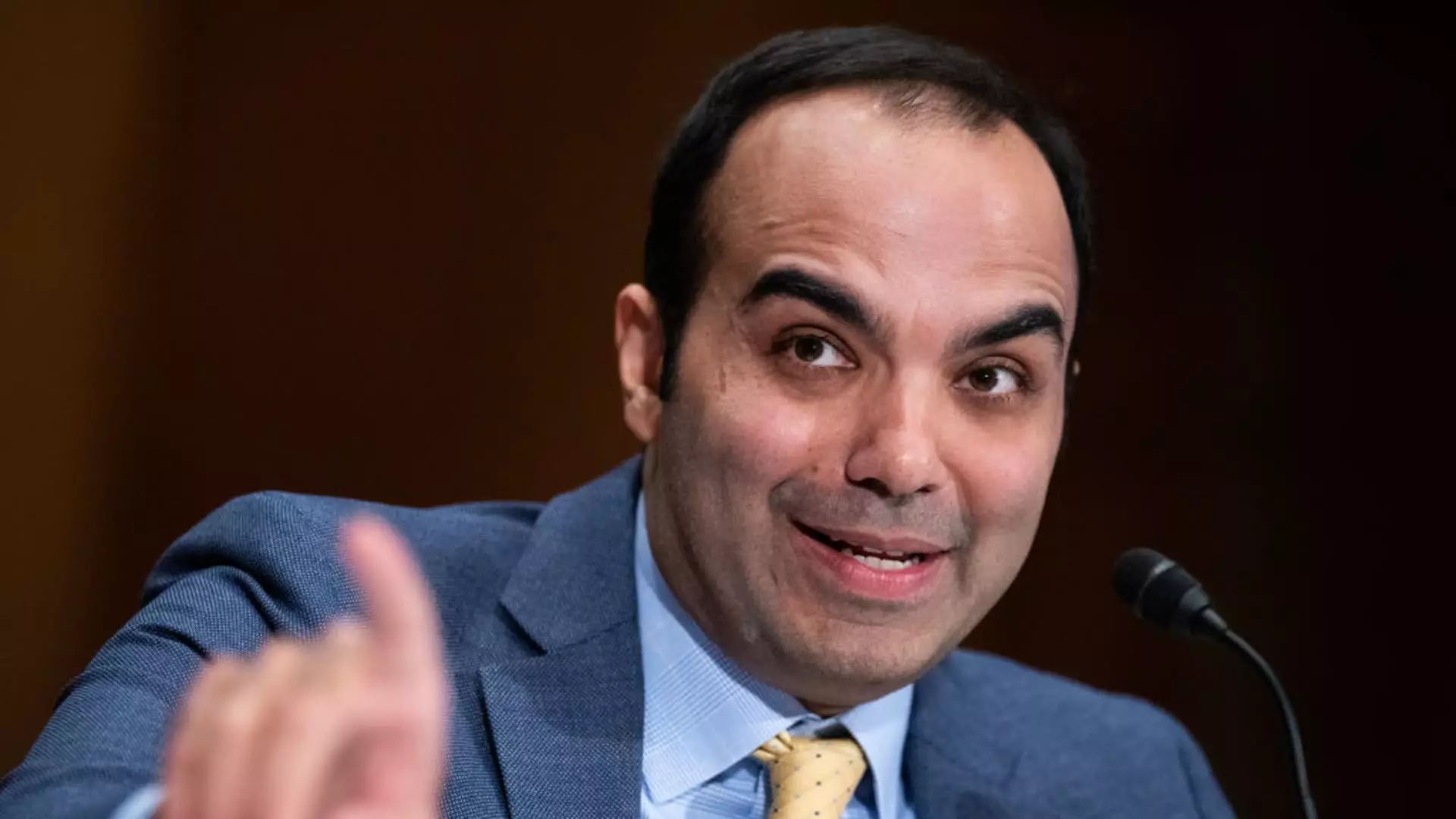The recent legal action taken by the Consumer Financial Protection Bureau (CFPB) against the operators of Zelle and the three dominant banks—JPMorgan Chase, Bank of America, and Wells Fargo—has ignited a debate that highlights serious concerns about the effectiveness of safeguards within the digital payment ecosystem. With allegations of negligence regarding fraud investigations and inadequate reimbursement processes, this case underscores the weaknesses inherent in the growing reliance on peer-to-peer payment platforms.
According to the CFPB, customers have reportedly lost over $870 million to fraudulent activities conducted through the Zelle payments network since its inception in 2017. This staggering figure reveals a grim reality; as instantaneous digital payments gain popularity, so too do the opportunities for financial exploitation. Zelle, lauded for its convenience in facilitating transactions, has instead become a breeding ground for fraud, with prominent policymakers expressing alarm over its inadequacies in protecting consumers.
CFPB Director Rohit Chopra articulated a pointed critique, stating that the major banks rushed to enter the competitive payments market without instituting adequate fraud protection measures, thus transforming Zelle into a prime target for malicious actors. The statement starkly illustrates the consequences of prioritizing market presence over consumer safety. Policymakers on the Democratic side have emphasized that banks must adopt rigorous security measures to protect their customers, scrutinizing Zelle as a symptom of broader systemic issues within the banking industry.
The lawsuit details the CFPB’s claims that the banks have consistently failed to properly investigate fraud cases. The statistics are alarming: despite a vast majority of Zelle transactions occurring without issue, a Senate report indicated that only 38% of fraud claims were reimbursed by the implicated banks. From a governance perspective, this situation raises questions regarding accountability, transparency, and consumer rights. When financial institutions seemingly evade liability for fraud losses attributed to their platform, they risk undermining public trust.
The banks contend they investigate fraud accusations thoroughly; however, a considerable number of disputes arise from situations where users authorized payments under false pretenses, complicating the accountability landscape. This lack of clarity in fraud definition further exacerbates consumer vulnerability, making it challenging for victims to recoup their losses. Moreover, the CFPB’s assertion that banks failed to rectify clear flaws in their systems, despite being aware of the volume of fraud complaints, paints a troubling picture of negligence.
The preference for Zelle among cybercriminals, as highlighted by cybersecurity experts, stems from the speed with which transactions can be executed. Tom Peacock, from BioCatch, noted how rapid transactions provide little room for recovery once funds have been seized. This raises significant questions about the efficacy of existing digital payment systems in safeguarding consumers against sophisticated fraud schemes. As the threat landscape evolves, financial institutions must reconsider their approach to fraud monitoring and response.
The reliance on weak identity verification processes within Zelle has made it easier for criminals to exploit the network, often resulting in transactions that can be executed before victims even realize they’ve been defrauded. This insight necessitates a critical reevaluation of Zelle’s security protocols and their adequacy in protecting users. As consumers increasingly turn to digital platforms for their financial transactions, the system as a whole must ensure that technology does not outpace regulatory frameworks aimed at safeguarding users.
Interestingly, the lawsuit arrives in the backdrop of tension between financial institutions and regulatory bodies. Banks, particularly JPMorgan, have indicated their willingness to engage in legal battles should regulators impose punishing measures related to their involvement in Zelle. This corporate rhetoric highlights a pervasive resistance to federal oversight and simultaneously raises concerns about the direction of consumer protection policies in a rapidly digitizing economy.
Further complicating matters, allegations by Early Warning Services, the fintech entity operating Zelle, assert that the reported $870 million loss figure inaccurately includes non-fraudulent claims and errors. This assertion, alongside their efforts to defend their reimbursement policies as adequate, suggests an ongoing battle between commercial interests and consumer advocacy. The core issue revolves around whether financial entities are genuinely committed to consumer protection or merely engaging in defensive tactics to preserve their market position.
As the CFPB’s lawsuit unfolds, it serves as a harbinger for potential reforms in the way digital payment platforms like Zelle operate. The increasing incidents of fraud highlight a vital need for enhanced transparency and responsibility within the banking ecosystem. It is imperative that banks recognize their duty to protect consumers as they navigate a technology-driven financial landscape. Moving forward, greater collaboration between regulatory agencies and financial institutions will be essential to resolve these systemic issues and restore consumer confidence in digital payment systems.

